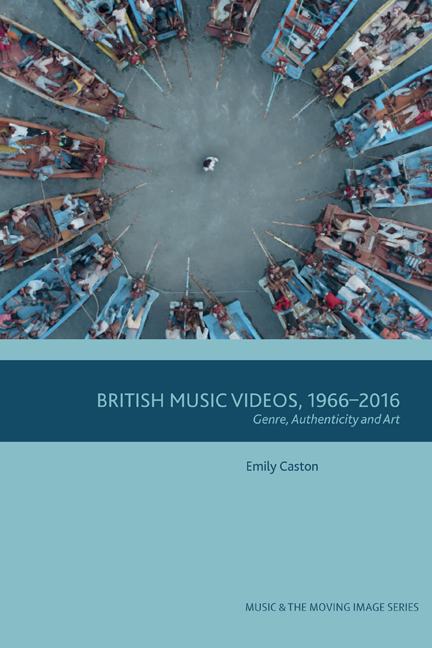Summary
This chapter looks at the patterns and tropes of collaborative authorship in British music videos since the mid-1960s. One could argue that the so-called Death of the Author has left authorship studies inoperable, but a language for the critical appreciation of music video which incorporates a theory of intentional creative practice is a precondition for the future production of music video appreciation and industry history. Who made what, and when, also has major financial and legal implications for musicians and filmmakers, because in most capitalist economies, it determines who does and does not get paid for copyright. In the discussion below I look at law, auteurism, the textual voice and social authorship – the degree to which the video articulates values, attitudes and iconography perceived as authentic to the music community in which the artist claims to have originated.
British music videos are made at the intersection of two production cultures: film and music. Both the film and music industries comprise human beings holding and continually reaffirming certain conceptions about the processes, crew hierarchies, legal and economic rules for production articulated through discourse(s) (Robins 1997: 4). But they often hold very differing conceptions of these, so the scope for something to go awry from the collision of these two cultures is huge. The diagram here identifies and illustrates the production process for a music video. It shows the parties with potential claims to authorship on a legal or empirical basis. The sheer complexity of the diagram shows the considerably different centres of creative, economic and legal power which are involved in music video production. To explain the licensing and rights of the music industry in England and Wales (the law is different in Scotland), the reader is referred to Frith and Marshall (2009), Grice (2013) and Harrison (2017).
LEGAL AUTHORSHIP
In Britain, it has been in the domain of rights and revenues that the clash of music and screen cultures has been felt most clearly. In most capitalist economies authorship is the framework through which the courts identify copyright, which, in turn, is the basis on which corporations trade in media (Doyle 2013).
- Type
- Chapter
- Information
- British Music Videos 1966 – 2016Genre, Authenticity and Art, pp. 88 - 104Publisher: Edinburgh University PressPrint publication year: 2020



